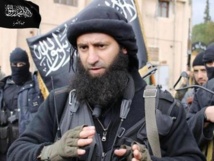
Ahrar al-Sham’s success is partly due to its fighters’ discipline and ability, qualities that have enabled Syria’s Islamist rebels to outgrow the fractious secular ones. Since late 2011, when the group first emerged in Idleb, a north-western province, it has made a big impact on the battlefield. It was one of the first groups to use improvised explosive devices and to target the regime’s military bases in order to capture weapons. Soon other groups were clamouring to join it. By January this year Ahrar al-Sham had 83 units spanning the whole country, including Damascus and Aleppo, its second city. In March it led the attack on the north-eastern town of Raqqa, the largest one now under rebel control.
Politically Ahrar al-Sham has been clever. It sees the war in Syria as a battle between Sunnis and Shias and wants a Sunni-led Islamic state, but emphasises that its campaign is for Syria, not for a global jihad. It has retained a Syrian leadership, saving the group from suspicions laid against others that are led by foreign fighters or include a lot of them. Ahrar al-Sham does not go in for suicide-bombings, preferring to use remote-controlled car bombs. It also carries out public works, mending roads and providing food, in contrast to other groups, whose predations upset the locals.
Also, by remaining independent of other groups—it refuses, for instance, to come under the umbrella of the West’s favourite commander, the Free Syrian Army’s Selim Idriss—it has avoided being labelled in the West as a terrorist group, as has happened to Jabhat al-Nusra, an al-Qaeda affiliate.
Some see the hand of Qatar behind its burgeoning success. “Ahrar al-Sham and its front is clearly positioning itself as an Islamist alternative to the disorganised moderate rebel fighters,” says Charles Lister of Jane’s Terrorism and Insurgency Centre in London. Its political arm is expanding too. Last month the Syrian Islamic Front, its umbrella, created a foreign-affairs department. It is active on Twitter. There have been reports that other Islamist groups, such as Saqour al-Sham, a leading member of the rival Syrian Islamic Liberation Front, may soon join the Syrian Islamic Front.
Hitherto the most prominent of the extreme Islamist groups has been Jabhat al-Nusra, which may have 7,000 or so fighters. But recently it has been bogged down in a power struggle with al-Qaeda in Iraq, led by Abu Bakr al-Baghdadi. After Jabhat al-Nusra’s leaders, led by Abu Muhammad al-Golani, refused to submit to his rule, the group split: a more extreme branch merged with the Iraqi brethren, forming the Islamic State of Iraq and al-Sham. It has recently clashed with other Syrian groups, something Ahrar al-Sham has so far avoided. As Jabhat al-Nusra’s clout has weakened, Ahrar al-Sham’s has grown stronger.









 Home
Home Politics
Politics









